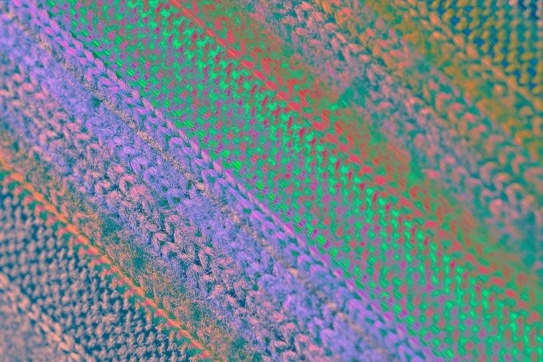

Fashion for Good x Textile Exchange
The Textile Tracer Assessment enables fashion stakeholders to evaluate which tracer technologies best meet their sustainability and operational needs.
Fashion for Good and Textile Exchange, two global initiatives, have released the ‘Textile Tracer Assessment,’ a complete guide to physical tracer technologies applicable to the textile supply chain.
The guide evaluates and assesses promising physical tracer technologies that may be used to improve traceability verification in the textile industry. It comes as the value of fiber provenance, authenticity, and production.
The evaluation gives stakeholders in the fashion ecosystem an overview of tracer technologies to analyze and select which would best meet their sustainability and operational needs.
Katrin Ley, managing director at Fashion for Good, said that the Textile Tracer Assessment provides much-needed analysis and recommendations to companies in the textile sector seeking clarity and direction to better understand and apply physical tracing technology in their supply chains. As new technologies develop and improved capabilities are introduced, this joint effort will give the industry a vital tool for traceability implementation.
The Textile Tracer Assessment was created as a resource for stakeholders from suppliers to brands to certifying authorities.
Tracer technologies are solutions that analyze the microparticle composition of fibers, materials, and completed goods (forensic tracers) or apply tracer substances at a specific point in the supply chain, which may then be identified later to validate provenance (additive tracers).
Isotope/elemental profiling tracers and DNA analysis tracers are examples of forensic tracers. Synthetic/artificial DNA tracers, ink/rare earth fluorescence tracers, and optical fingerprints are examples of additive tracers (watermarks and prints).
Evonne Tan, data and technology director at Textile Exchange, said that Tracer technologies play a vital role in connecting forensically validated physical material to the current digital chain of custody. With the profusion of advancements in this field, they are pleased to provide the Textile Tracer Assessment as a starting point for standards, suppliers, and brands seeking to better understand this landscape. They look forward to continuing to coordinate and collaborate with technologies to improve material provenance and traceability in certified supply chains.
Physical/material authentications are currently lacking in current chain-of-custody systems, which may result in fraudulent claims and the source of fibers and materials with unregulated environmental dangers. The purpose of this research is to address the major problems in both types of tracer technologies, as well as how and where they might be used to reinforce chain-of-custody models and fiber/material integrity.
Fashion for Good and Textile Exchange is inviting all tracer technologies relevant to the textile sector to participate in the Textile Tracer Assessment so that new and current technologies and capabilities may be updated and presented industry-wide.
Yiqi Yang has developed a groundbreaking fiber-to-fiber recycling technology that removes dyes, separates blended fibers, and recovers high-quality materials.
DS Smith has unveiled a plastic-free packaging solution for BMW's car wheel carriers, replacing traditional materials with recyclable corrugated cardboard.
A doctoral thesis from the University of Borås, Sweden, presents a novel method for healing large bone defects using bioplastic…
Ambercycle and Highsun Holding Group have signed a strategic cooperation agreement aimed at advancing textile-to-textile (T2T) closed-loop recycling systems.
PAIGE has partnered with the Cotton Lives On programme to launch a recycling campaign, encouraging customers to bring in old…
Toray Industries Inc. from Japan, has partnered with Head Sports GmbH to create the Boom Raw tennis racquet, a product…